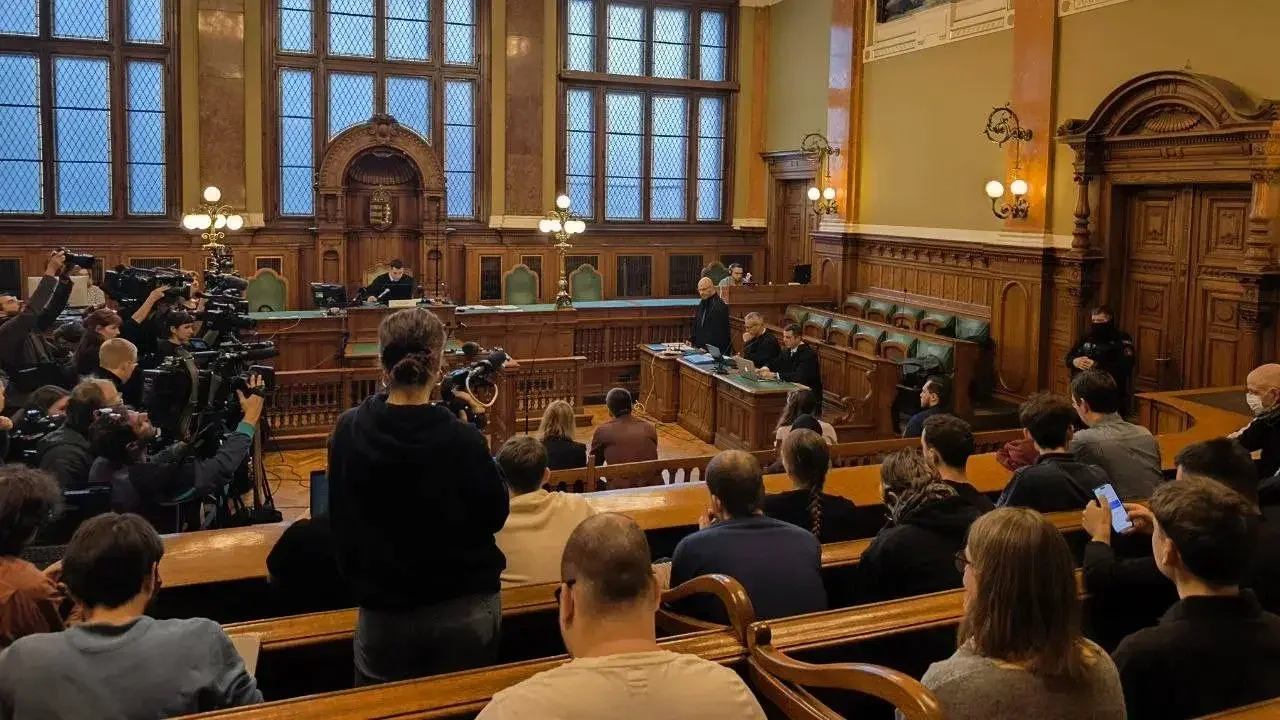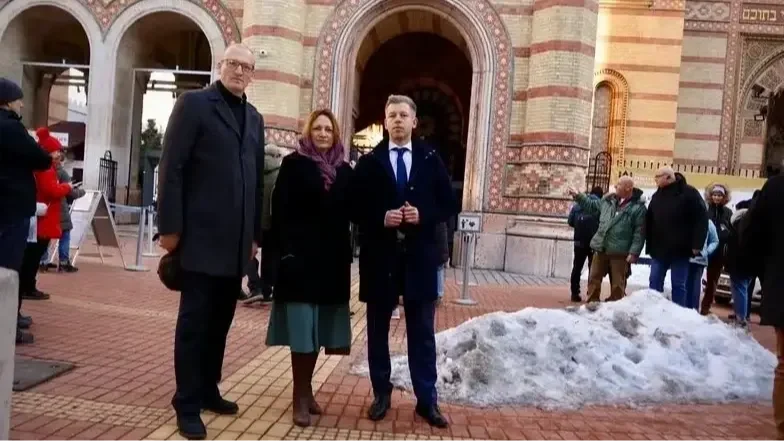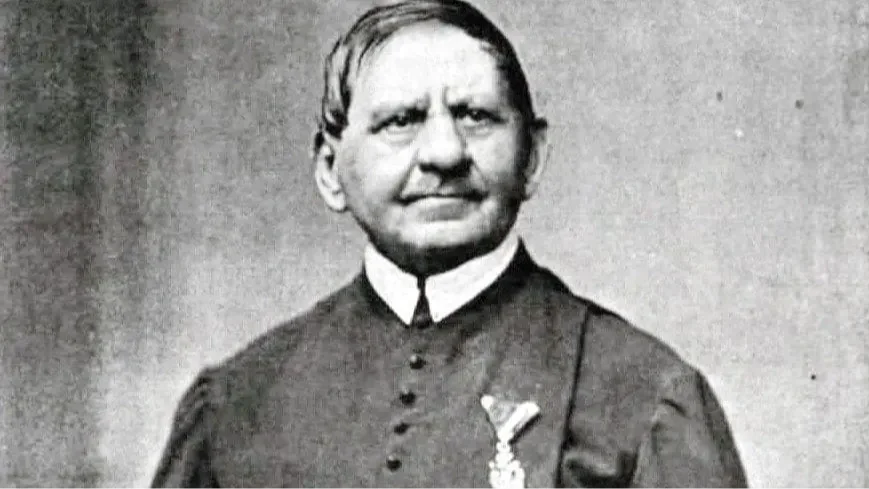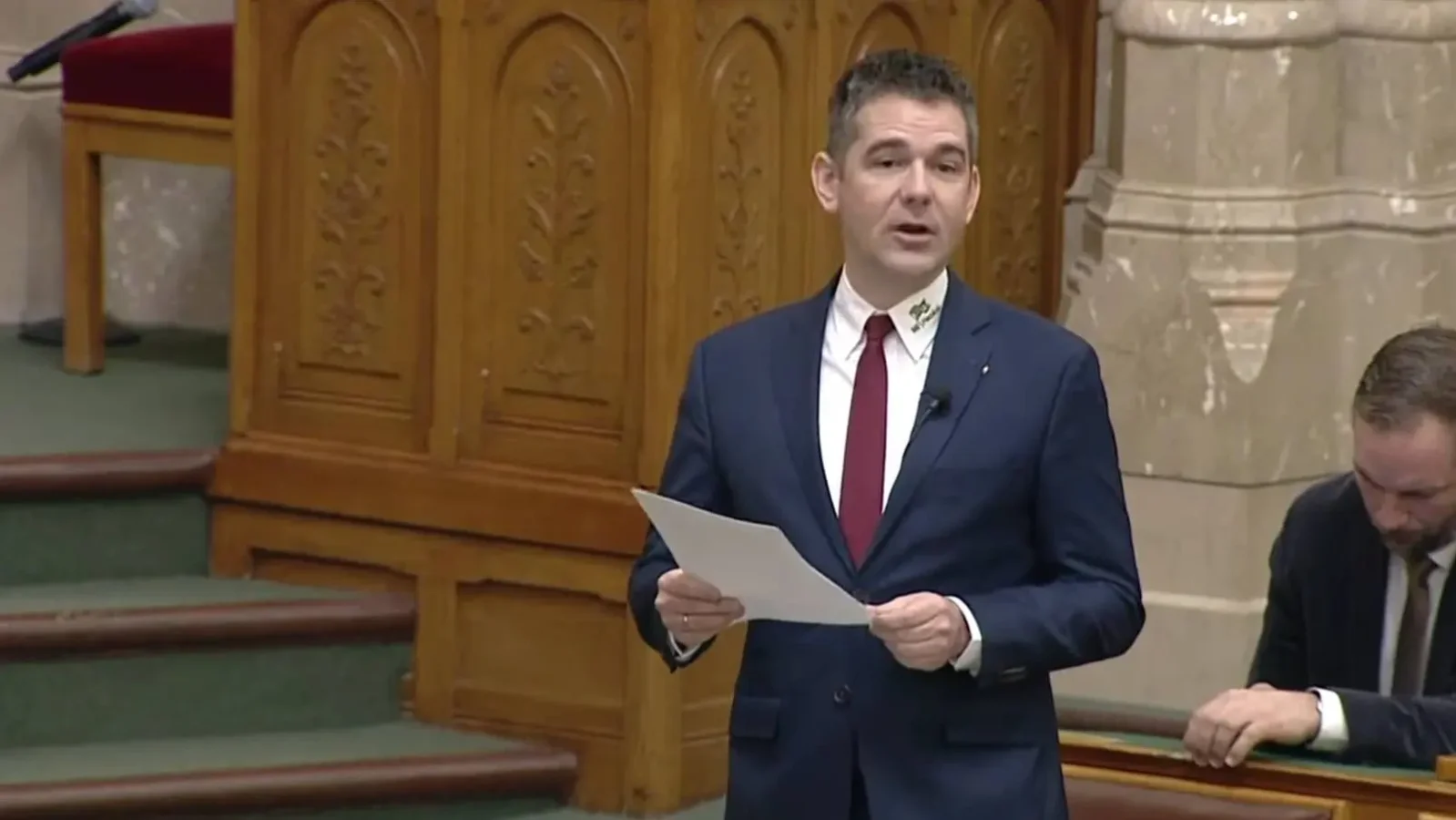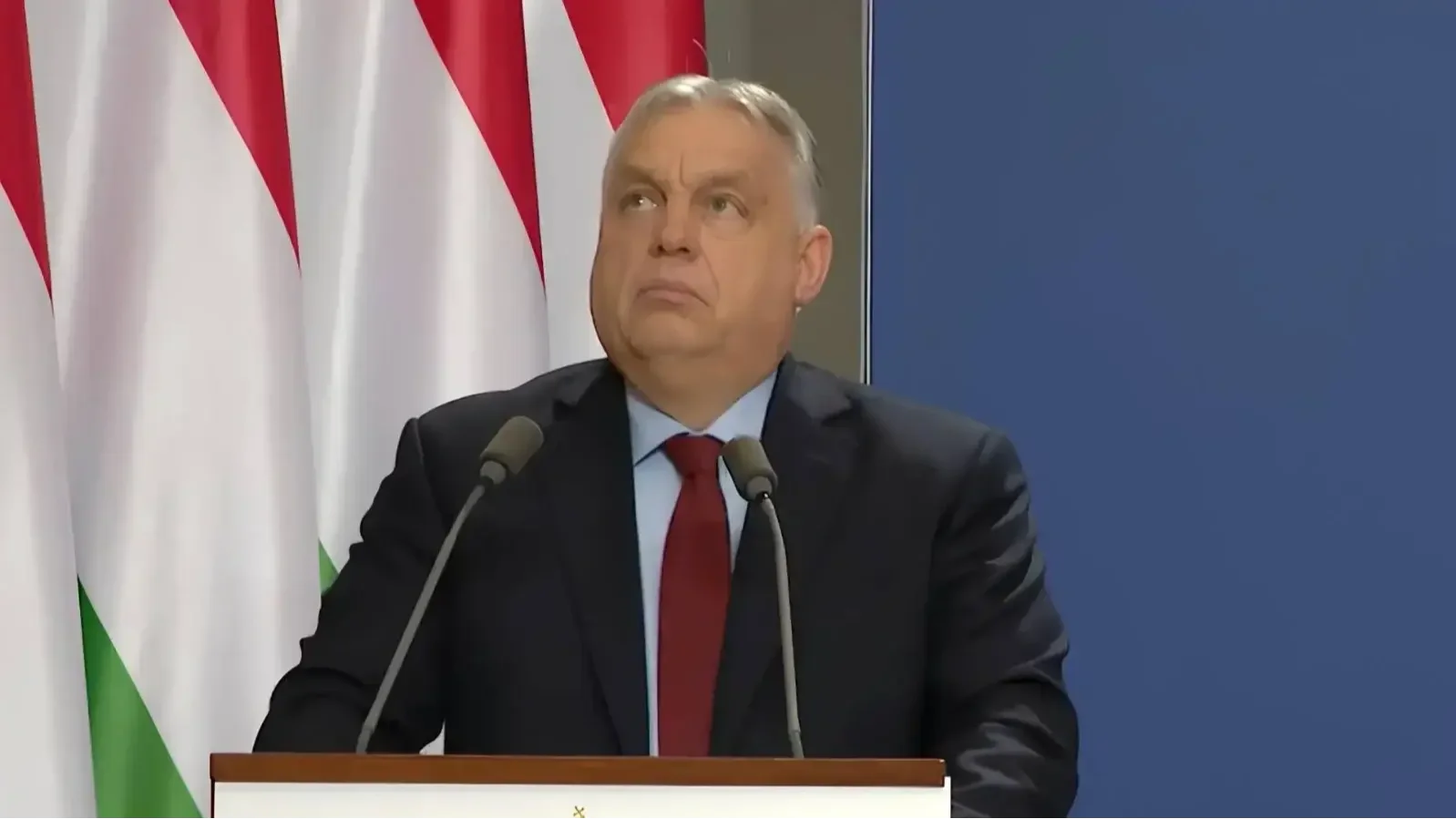Peter Magyar and the Politics of Subordination
 Image: Havran Zoltán - Magyar Nemzet
Image: Havran Zoltán - Magyar Nemzet
Peter Magyar's ascent in Hungarian politics can be traced to ambition, scandal, and inherited privilege. The 44-year-old lawyer comes from a family long embedded in Hungary's institutional elite. His grandfather, Pál Erőss, served as a Supreme Court judge and became a prominent legal commentator on state television during the socialist era. After communism fell, his mother, Erőss Mónika, rose to senior judicial positions, a career that critics say benefited from her father’s influence in elite political circles. His great-uncle, Ferenc Mádl, served as President from 2000 to 2005. Magyar's lineage is one accustomed to institutional authority, rooted not in Hungary’s prewar traditions but in the repressive Kádár-era ‘goulash communism.’
Both his grandfather and mother illustrate how the communist-era establishment could shape careers and maintain influence across generations. Pál Erőss combined judicial authority with a public role on television, reinforcing the party-state system's reach into law and public opinion. His mother advanced under democratic institutions while carrying the advantages of longstanding family connections to elite networks. Together, their legacy provided Magyar with a foundation of privilege that sharply contrasts with his rhetoric against institutional corruption.
Magyar grew up in Budapest's District V near Parliament. After graduating from Pázmány Péter Catholic University, he joined Orbán's party and spent fifteen years in roles advancing EU integration. He worked at Hungary's Brussels representation, lobbying for corporate and energy interests in EU legislation. He held positions at MBH Bank under oligarch Lőrinc Mészáros and at the Student Loan Center, earning 24,000 euros a month, nearly 20 times the average Hungarian salary. His 2006 marriage to Judit Varga opened doors in the Fidesz establishment as she rose to Justice Minister. Magyar and his family navigated both the successor institutions of the old nomenclature and the emerging patronage networks.
In February 2024, President Katalin Novák resigned after pardoning a man who had covered up child sexual abuse. Judit Varga resigned soon after, having countersigned the pardon. Within hours, Magyar acted.
He left all state positions he held and gave interviews to opposition media. He also secretly recorded Varga in their home and released the audio without her knowledge or consent. Varga accused her ex-husband of domestic violence spanning their sixteen-year marriage, and a 2020 police report corroborated some of the incidents. Later, Magyar’s subsequent girlfriend, Evelin Vogel, came forward with additional abuse allegations.
In June 2024, just after securing his European Parliament seat, security guards removed Magyar from a Budapest nightclub around 4 a.m. He had been heavily intoxicated, slapped a man who filmed him, seized the phone, and threw it into the Danube. Hungarian prosecutors charged him with theft in connection with the incident. Magyar had promised he would never use parliamentary immunity and called his MEP seat a "fake job," yet he broke both promises, accepting the position and hiding behind the immunity he had denounced. The secret recordings, domestic violence allegations from two women, criminal charges, and immunity hypocrisy reveal the contradictions of his actions. He now relies on Brussels to shield him from Hungarian prosecution.
Magyar's rapid integration into Brussels power structures illustrates what Hungarian families might face under his government if he were elected.
Manfred Weber, EPP chairman, welcomed him immediately after the June 2024 elections. Tisza's head of delegation admitted, "we rely on the EPP's position, which carries a certain obligation."
His network extends beyond the EPP. Dóra Dávid, second on Tisza's EP list, works as legal counsel for Meta in London, the company that censors conservative voices across Europe. Two of Magyar's key advisors, Seprenyi Anita (his personal assistant and press officer) and Farkas Dezső, were trained through Klaus Schwab's World Economic Forum Global Shapers Community program for young progressives. Magyar personally met with Ursula von der Leyen and invited her to Hungary, supporting the reelection of the EU Commission president, who was allegedly linked to a 35-billion-euro Pfizer vaccine deal..
Perhaps most concerning is Hungary’s military. His advisor, Romulusz Ruszin-Szendi, former Hungarian Chief of General Staff, was dismissed in 2023 for promoting pro-Ukrainian positions at NATO meetings that contradicted official government policy. Investigations revealed that Ruszin-Szendi ended his NATO presentations with "Slava Ukraini!", although official reports recorded more neutral positions. Ruszin-Szendi advocates reinstating conscription, stating, "war is good business."
During his tenure, Ruszin-Szendi oversaw construction of a villa costing nearly one billion forints in public funds, ordering a four-million-forint family crest engraved in glass and having his wife send emails specifying personal design preferences. This display of corruption underscores the degree of privilege and impunity he enjoyed while in office. He now serves as an advisor to the potential next Prime Minister.
EPP sister parties, such as Croatia's HDZ, have already voted to reintroduce conscription, set to start in January 2026. A Magyar-led government would face immense pressure to follow suit. Beyond conscription, his government would also face pressure to surrender Hungary's EU veto on Ukraine funding, migration quotas, and sanctions policy.
On migration, Magyar remains silent domestically while his Tisza MEPs vote in Strasbourg to implement Brussels’ migration policies. In October 2024, they backed the swift implementation of the Migration Pact, including €25 million to strengthen the Asylum, Migration and Integration Fund. They also supported proposals enforcing the European Court of Justice's €200 million fine against Hungary for border control procedures.
Tisza MEP Eszter Lakos stated, "Hungary should obey Brussels and pay the migration fine." Fellow MEP Dóra Dávid declared, "We have to change our attitude, we should not exclude anyone, we should welcome everyone." Magyar's migration advisor, Boldizsár Nagy, called for "a Europe without borders" and described migration as a "fundamental right" and a "moral obligation," rejecting the term "illegal migrant."
Magyar avoids publicly taking positions on these policies at home. As Tisza MEP Zoltán Tarr admitted in leaked recordings, "there are things we cannot talk about until after elections, because otherwise we would lose." When asked directly about Budapest Pride, Magyar stated, "we won't limit anyone's right to assembly," signaling his stance on cultural and moral issues he otherwise avoids discussing.
What can ordinary Hungarians expect from a Tisza government? His economic advisors make it clear. Mária Zita Petschnig’s institute wrote Tisza’s economic program. She criticized Hungary’s flat tax and mocked the personal income tax exemption for mothers, asking, "Why should they give this to someone over fifty? Surely, they're no longer in a position to improve the demographic situation." Economist Tamás Katona argued that Hungary’s personal income tax is "too low" and called the personal income tax exemption for mothers "unrealistic, unjust, and irrational." Economist András Simonovits claimed the pension system is "too generous" and said pensions should be "reduced and more heavily taxed." Peter Ákos Bod stated that a new government must change Hungary’s migration stance to avoid "prestige loss" from European Court fines.
Magyar's advisors would raise taxes, cut maternal benefits, slash pensions, and accept migration quotas. Yet, Magyar claims frozen EU funds could solve Hungary’s problems through complete policy subordination.
The structural problems Magyar identifies are real. Corruption has become systemic under Fidesz, concentrating wealth among connected oligarchs while ordinary Hungarians struggle. Healthcare and education systems require reform, and electoral manipulation and state resource capture demand solutions.
Magyar did not emerge in spite of Fidesz. He emerged because of what Fidesz created.
Orbán monopolized nationalist rhetoric while discrediting it through corruption. He destroyed independent institutions and co-opted public and administrative structures, producing a vacuum in which Brussels-aligned globalist figures like Magyar could rise.
Fidesz sold Hungarian sovereignty to Chinese infrastructure projects, Russian energy dependency, Israeli surveillance technology, and American corporate interests, all while performing nationalist theater through culture war rhetoric. They demonstrated that “sovereignty” rhetoric could coexist with selling the economy to foreign powers. Voters were presented with a false dichotomy: corruption with rhetorical nationalism or reform through Brussels subordination.
Magyar does not represent an alternative to Fidesz’s failures but a different version of the same problem. Namely, open subordination to external patrons.
While Fidesz compromised Hungary’s independence to serve multiple foreign interests, Magyar offers direct subordination to Brussels and other globalist hegemons. He embodies the consequences when genuine nationalist politics are discredited by those who monopolized the rhetoric while betraying its principles. In that vacuum, Brussels-aligned comprador politics fills the void.
Magyar may win power in 2026 by default, riding voter exhaustion. What would voters be choosing? A man from the old establishment who thrived in the corrupt system he now condemns, who secretly recorded his wife, who broke every promise during his rise, and who relies on Brussels for protection from Hungarian prosecution.
His party offers no vision beyond anti-Orbánism and Brussels alignment. His advisors would raise taxes on families, cut pensions, accept migration quotas, and push conscription. His MEPs vote for Brussels war policies while he remains silent domestically.
A Magyar government would potentially send Hungarian sons to fight in conflicts decided abroad. It would accept migration quotas and comply with Brussels fines. The government would likely repeal the child protection law, reduce or eliminate flat tax benefits and the personal income tax exemption for mothers. It would cut pensions and increase the tax burden on the population. Energy prices would rise as the government resets its international arrangements. Hungarian families would face higher taxes, fewer benefits, and greater economic and social pressures. At the same time, Magyar’s advisors would position themselves to capture EU funds.
This is not renewal. It is simply another elite seeking power while subordinating national interests to external patrons, different patrons than Fidesz chose, but subordination nonetheless.
Sources:
Magyar Nemzet
"Peter Magyar Suspected of Theft Could Face Imprisonment" (September 30, 2024)
"Unmasked: Peter Magyar's Denial Falls Flat as Tisza Party Circles Push Tax Hikes" (August 31, 2025)
"Peter Magyar Exposed: How Tisza Would Push Through Brussels' Migration Plan" (September 30, 2025)
"Tisza Party's True Colors: Paving the Way for Brussels' War Plans with Conscription" (November 2025)
Magyar Jelen
"Sunyiság és zűrzavar – így szavaz a Tisza Párt az Európai Parlamentben" (October 29, 2024)
"Nyolc ok, hogy Magyar Péter globalista" (July 2024)
"Magyar Péter a Budapest Pride-ról: senkinek a gyülekezési jogát nem fogjuk korlátozni!" (July 2025)
Demokrata
"Íme a dokumentum: a tiszások valóban megszavazták a migrációs paktumot" (October 25, 2024)
Telex
Coverage of Magyar's political activities and domestic violence allegations (2024-2025)
Euronews
"Ex-wife hits out at Hungarian opposition leader Péter Magyar" (July 4, 2025)
DailyNewsHungary
"Former justice minister accuses ex-husband of 'blackmail, terrorising'" (March 27, 2024)
Mi a munkánkkal háláljuk meg a megtisztelő figyelmüket és támogatásukat. A Magyarjelen.hu (Magyar Jelen) sem a kormánytól, sem a balliberális, nyíltan globalista ellenzéktől nem függ, ezért mindkét oldalról őszintén tud írni, hírt közölni, oknyomozni, igazságot feltárni.
Támogatás
